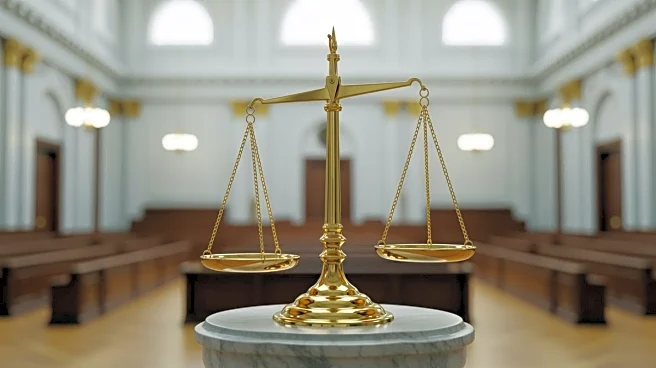What's Happening?
The Trump administration's application of the 'emergency' label under the International Emergency Economic Powers Act (IEEPA) is set to be reviewed by the Supreme Court. The administration argues that the president has the authority to impose tariffs
by declaring trade deficits as an emergency. This interpretation of IEEPA has raised concerns about executive overreach, as tariffs are traditionally considered taxes, a power constitutionally assigned to Congress. Critics argue that the use of the 'emergency' label has become a routine method for expanding executive power and bypassing fiscal discipline. The practice has led to significant emergency spending, with estimates suggesting around $15 trillion in related costs since 1991.
Why It's Important?
The Supreme Court's decision on this matter could have profound implications for the balance of power between the executive and legislative branches. If the court upholds the administration's interpretation, it could set a precedent for future presidents to unilaterally impose tariffs and other economic measures under the guise of an emergency. This could lead to increased executive control over economic policy, potentially undermining congressional authority. Additionally, the widespread use of the 'emergency' label for budgetary purposes has significant fiscal implications, contributing to national debt and affecting government spending priorities.
What's Next?
The Supreme Court's review will determine whether the president's use of the 'emergency' label under IEEPA is constitutional. A ruling against the administration could restrict the executive's ability to impose tariffs without congressional approval, reinforcing the separation of powers. Conversely, a ruling in favor could embolden future administrations to use emergency declarations more liberally, impacting economic policy and fiscal governance. Stakeholders, including lawmakers and economic analysts, are closely monitoring the case for its potential to reshape executive authority and fiscal policy.
Beyond the Headlines
The broader implications of this case extend to the ethical and procedural aspects of governance. The routine use of emergency declarations raises questions about accountability and transparency in government spending. It highlights the need for clearer criteria and oversight in designating emergencies to prevent misuse and ensure fiscal responsibility. The case also underscores the importance of maintaining checks and balances in government to safeguard democratic principles and prevent the concentration of power.















